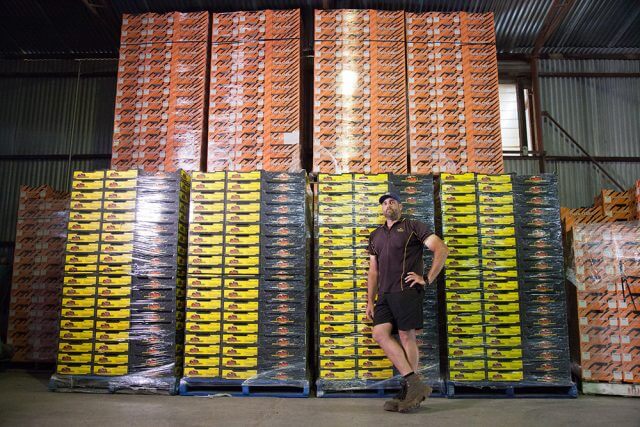
A proposal to increase the tax paid by working holidaymakers will hurt the agricultural industry and make Australia less competitive according to Hills Orchard Improvement Group spokesman Brett Del Simone.
The proposed changes to 417 visas would come into effect on July 1 and would see those on a working holiday paying 32.5 cents in tax for each dollar earned below $18,200, scrapping the tax-free threshold.
Mr Del Simone said the changes would drive working travellers away from Australia, which would damage the economy and tourism, while making it more difficult for businesses such as orchards to attract a workforce.
“We rely on them because they’re motivated, flexible and they generally have experience in handling produce because they follow the produce cycle around the country,” he said.
“I understand the point of view that we need to employ Australians but the fact is that when we advertise these positions Australians are generally not turning up and when they do they don’t last very long in the job.
“The 417 visa holders themselves are concerned as well and they’re already communicating this potential change to their home countries.”
Mr Del Simone said while he opposed the changes he understood the Federal Government’s concerns regarding a taxation revenue shortfall.

He supported the National Farmers Federation’s suggested flat taxation rate of 19 per cent from the first dollar earned.
Federal Member for Canning Andrew Hastie said he had spoken with HOIG and local growers and had taken their concerns to the Coalition Backbench Policy Committee on Agriculture.
He was opposed to the changes, which would unfairly and negatively penalise backpackers and growers in his electorate.
“There was a 5.4 per cent reduction in the number of subclass 417 visas granted between 2013-14 and 2014-15, which the Department of Immigration suggests could be the result of changing economic conditions,” he said.
“Given this already unstable situation, and the reduced economic benefit that changes will provide to backpackers, it is likely we will see a reduction in backpackers looking to travel to and work in Australia.”













